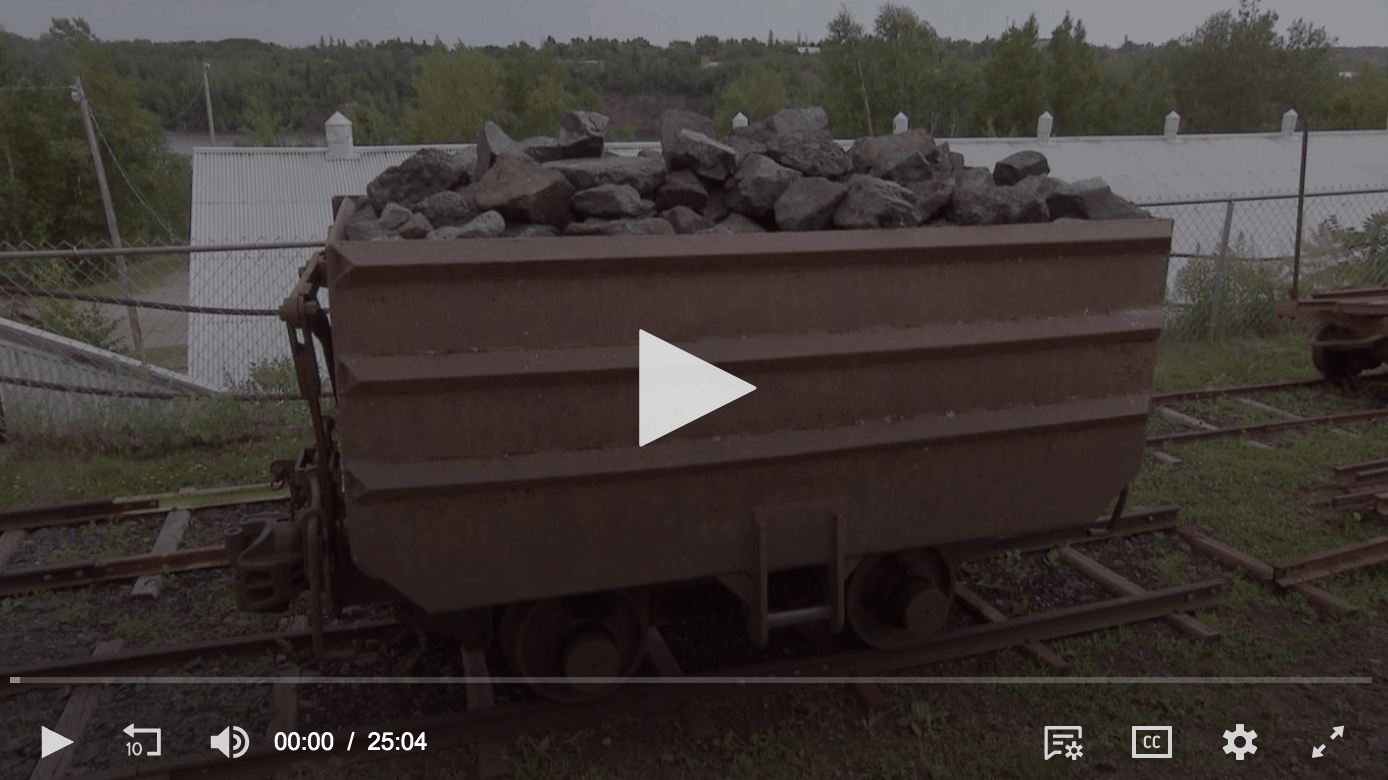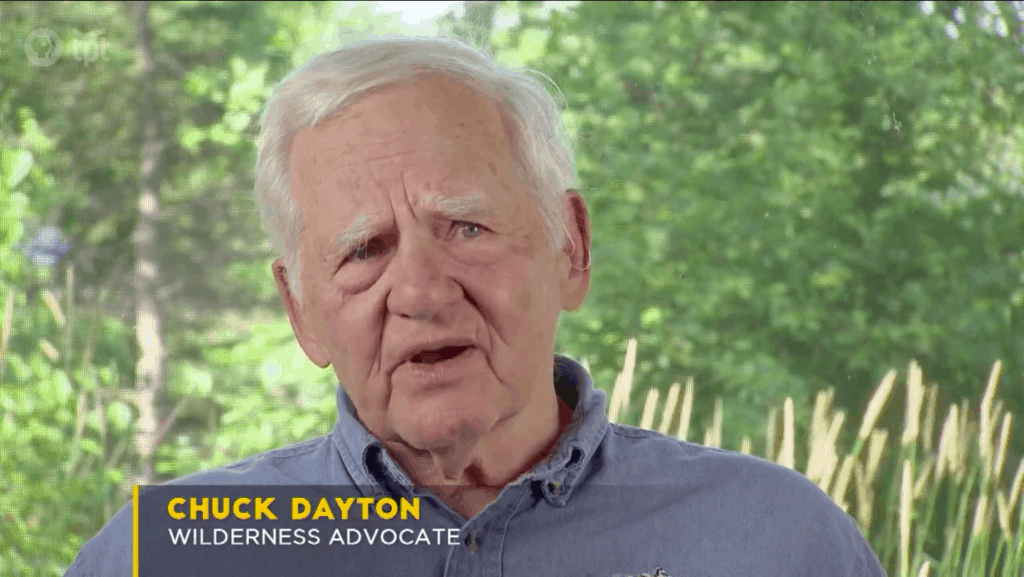
[DISPLAY_ULTIMATE_SOCIAL_ICONS]Twin Cities Public Television’s ‘Almanac’ recently devoted an entire show to the debate over the Twin Metals mine proposal at the edge of the Boundary Waters. Departing from their usual mix of short segments and panelists, Almanac host Erik Eskola says “The Twin Metals story is simply too complex, too emotional, and too far-reaching to tell in our normal format.”
In the 25-minute report, producer David Gillette spoke to many people in Ely who support or oppose the Twin Metals proposal, which would operate an underground mine near the Kawishiwi River.
In their visit to Ely, the producers acknowledge the town’s heritage of both iron and taconite mining, and wilderness recreation.
What’s at Stake in the Proposed Twin Metals Copper-Nickel Project?
Investigating issues like the value of the copper ore that has been discovered, the employment opportunities of a potential mine compared to the area’s tourism industry, and the environmental review and regulatory process that will determine if the mine is permitted.
Part One: Core Samples
The first segment focuses on the valuable minerals that have drawn the interest of Twin Metals, and its Chilean owner, Antofagasta PLC. The show visits Twin Metals’ core library, where more than 280 miles of rock that has been drilled and extracted in the surrounding area is analyzed and stored.
Twin Metals employees tell viewers that the data they have compiled from these samples show an ore deposit that starts at the surface and slopes deep underground. It’s worth digging up, and can provide enough profits to ensure the operation is conducted safely.
But outfitter and guide Jason Zabortsky isn’t convinced. He tells TPT that it’s the same line mining companies have always used.
“When mining companies like Antofagasta, a Chilean mining giant, come to Ely and tell us that things are going to be different now and that they’re not going to pollute and they have new technology, it just rings hollow because that’s what these mining companies say every single time they come to a community,” Zabortsky says.
Twin Metals maintains that because its mine will be underground — as opposed to open pit, like PolyMet — and will use “dry stacking” method for storing its waste, the company will avoid polluting downstream waters.
“We’ll meet or exceed any regulation or requirement in front of us,” says Dean DeBeltz of Twin Metals.
Part Two: Jobs
The contrast between the tourism economy and the jobs it offers, versus mining industry jobs.
Mine opponents tout the “Wilderness Edge Economy,” while Twin Metals supporters say the potential for tourism and recreation to support the town and the people who live there is simply not enough.
“The town was built on mining and logging, and tourism came along and was frosting on the cake,” says Dan Waters, the pro-mining owner of wilderness outfitter Canadian Waters. “It’s always seasonal, and has never supported economy as we know it in Ely.”
Other mine proponents claim that because some people involved with the mine proposal live in Ely, they have a stake in ensuring it doesn’t pollute.
Ely mayor Chuck Novak criticizes the media for shallow reporting of the issue, and says he believes in 30 years, Twin Metals will have successfully mined the ore deposit and shut down after its lifespan.
Anti-mining advocate and Ely entrepreneur Steve Piragis, tells the audience that there are plenty of ways to make a living in the town without depending on a mine.
“Ely is full of opportunities, but they’re not going to be handed to you,” Piragis says.
Part 3: Process
The final segment grapples with where Twin Metals is headed. Supporters such as Rep. Pete Stauber say they trust “the process” to review the proposal and issue permits if the mine plan is found satisfactory.
Looking at the more than 10 years that the nearby PolyMet mine proposal was in review and permitting, they say it’s proof that Minnesota can do this safely.
This process is why they oppose efforts to block the mine proposal in the first place, by removing mineral leases or enacting a moratorium on new mines in the Boundary Waters watershed.
Tom Landwehr, who gained intimate knowledge of the process during his tenure as Department of Natural Resources commissioner from 2011-2019 (during the administration of Governor Mark Dayton) is now leading the fight to block Twin Metals.
As executive director of the Campaign to Save the Boundary Waters, Landwehr says Minnesota’s mining regulations are not enough to protect natural resources.
“You can meet state standards and still be degrading the water body,” Landwehr tells viewers. He points to the standard for sulfate discharges into wild rice waters, which allow companies to raise the level of sulfate in waters without breaking any rules.

TPT closes the segment by positioning the Twin Metals decision as similar to previous debates over the Boundary Waters.
Longtime wilderness advocate and lawyer Chuck Dayton points out that from 1909 to 1978, management of the Boundary Waters was always “moving in the direction of more wilderness protection, not less.”

